Railways started as local ventures that grew into regional companies. A trip from London King’s Cross to Edinburgh Waverley 100 years ago would have meant the passenger travelling over the rails of the Great Northern, North Eastern and North British Railways. A few years later it would have been solely on the London & North Eastern Railway.
When nationalisation took place, the LNER became part of British Railways (together with the London Midland & Scottish, Southern and Great Western Railways). Yet BR retained a regional structure, such that King’s Cross-Edinburgh passed through its Eastern, North Eastern and Scottish Regions. The regions guarded their autonomy closely, and the general manager of each was a lofty figure who commanded much authority and respect.
BR reorganised itself away from regions to business units in the years before privatisation, but the switch to Railtrack owning the tracks brought a resurgence of local power under the zone directors. Railtrack failed, and its successor - Network Rail - sought a tight central grip to restore stability following accidents that exposed the network’s splits and fragility. At the same time, the Department for Transport was taking tighter control of the passenger franchises.
NR was brought under clear and direct government control in 2014 by a European accounting decision, ironically at a time when the British Government was pushing an agenda of localism and devolution. At least, the DfT can now instruct NR to devolve power. It can also gather power back to the centre whenever it wants. At the moment, devolution is in favour.
The need for decisions about investment and services to be taken more locally is clear when Nicola Shaw’s report The future shape and financing of Network Rail says: “Individual respondents conveyed a clear sense of disempowerment, with customers, passengers and freight shippers expressing frustration that decisions are taken in their absence, in a way that makes them feel that the railway operates in spite of them rather than for them.”
Shaw welcomes NR’s moves towards compiling regional scorecards, so that customers can see how it’s performing. She notes that each train and freight operator will need to act as a reasonable proxy for its customers - this will require train operators to listen closely to passengers and act on what passengers say, rather than simply regarding the DfT as ‘the customer’ (even though it’s the DfT with which TOCs sign their franchise agreements). Freight operators already talk closely with their customers, and often face a tricky task in explaining why NR can’t do something.
Devolution to routes will need other organisations to change. One is the Office of Rail and Road (ORR), which will need to split its work further and more clearly to provide local funding streams and effective oversight of local work. It did this when Scotland was split from the rest of Britain in rail funding terms. While ORR’s final determination for Control Period 5 (2014-2019) did not provide detail at route level, NR’s subsequent delivery plan did split the work it needs to do at route level - thus the foundations of this change are in place.
For Shaw, NR routes should be able to:
■ Decide how to maintain and renew their assets with a framework set centrally by NR acting as a system operator and technical authority.
■ Plan engineering works to balance customers’ and operating/maintenance needs. There will need to be some co-ordination above route level, to ensure that regional teams responsible for (for example) East and West Coast Main Lines don’t close both at the same time.
■ Develop and deliver minor enhancements. Shaw admits that there might be some tension between routes and the centre if the routes plan to use new technology and equipment.
■ Sell access rights and compile timetables. This will need co-ordination with the system operator and technical authority. The arguments about adding more trains to the East Coast Main Line put close focus on the challenge of selling access rights locally. The ECML has London suburban trains close to the capital, inter-regional trains in northern England, inter-city trains from south and southwest England, and then local Scottish trains north of the border. Then there are the open access operators that remain close to and popular with their passengers.
■ Be held responsible for performance, particularly delays. There remains the challenge of delays imported from other routes, but local management should be better placed to develop contingency plans with their customers to deal with delays.
Shaw accurately assesses the depth of cultural change needed, saying devolution will “depend on the centre being prepared to let go and let the routes really thrive”.
Major problems will land on the centre, and the chief executive will need to be ready to present the public face of the organisation even when the problem was generated at local level. This was starkly illustrated by the problems at King’s Cross over Christmas 2014, when a modest renewal project went horribly wrong and dominated the headlines. However, it was under the remit of one of NR’s central functions - Infrastructure Projects - rather than a regional team.
Local focus can work against national operators such as the freight companies, and Shaw’s answer is to create a freight route to sit alongside the regional routes. Shaw describes the freight route as a virtual one that shares some of the properties of the geographic routes in terms of autonomy and local policy setting, and which is subject to network-wide conditions.
Yet Railtrack had freight directors, and NR has one today. They were responsible for seeing that their customers were not squeezed out, but it’s clear from Shaw’s report that this has not proved either sufficient or effective in the past.
The report said: “The Shaw Report team intends that the role of the freight team is protected and enhanced, rather than diluted in a further devolved organisation. The role of this route should include identifying opportunities for freight, helping develop and implement freight policy, managing freight performance and acting as overall champion to ensure that freight operators are not overlooked in what is a primarily passenger-dominated railway.”
Shaw imagines a future in which the freight director stands equally with route directors (both described as CEOs in her report, which is an unnecessary inflation of job titles). This will depend as much on the individuals appointed to these posts as the structure in which they work.
With parts of the network running short of capacity for extra traffic, and TOCs promising more trains and more money for DfT, there will be some tough arguments (and choices) about the best use of space. Recent track access discussions have featured TOCs arguing that they have a government-given right to extra space, but freight struggles to make this argument. Furthermore, with a recent sharp decline in coal traffic, the freight sector can look as if it’s yesterday’s industry that’s unable to find a place today.
However, InterCity RailFreight consultant Nick Gallop argued in the last RailReview that freight’s future should be with high-speed, high-value goods that link distribution centres with city centres. This is more akin to passenger traffic, which creates the possibility of even more competition for track space and yet more difficult discussions for route directors and their freight colleague.
RAIL FREIGHT
Despite this, the Rail Freight Group remains positive. Executive Director Maggie Simpson told RAIL 799 in April that she welcomed Shaw’s report: “I think the Shaw report is actually very good for freight. Arguably there has never been a government report into the railways that has had such an emphasis on freight. It got two things right - it gave a lot of importance to having freight routes with equivalent status to the other routes, and generally I think Shaw recognised in the models she was proposing that you have to make sure freight is properly looked after.”
She added: “The rhetoric around having a strong freight route is hugely powerful. What that means in practice remains to be seen, but it gives us the strongest possible footing to do that.”
With NR’s recent announcement that it is taking forward Shaw’s ‘virtual freight route’ recommendation, Simpson explores this in more detail in her column on pages 62-63 this issue.
It’s not just freight that needs strong management across route boundaries. CrossCountry needs the same treatment. It’s an operator based on Birmingham, not London, and so it doesn’t fit NR’s route model that is focused on the capital (less for Scottish and Welsh routes).
London has always been a strong draw for railway companies. Yet before Grouping in 1923 that created the London and North Eastern Railway, it was not universal. Northern England had its own railway companies.
The Lancashire & Yorkshire Railway described its patch with its name. The Manchester, Sheffield & Lincolnshire Railway was another, although it later let the side down by changing its name to the Great Central Railway and building a main line ‘extension’ to London.
The Great Northern served Doncaster and Leeds from London; the Midland served Sheffield and Leeds before heading towards Carlisle; the London & North Western served Liverpool and Manchester, built a branch to Leeds, and pushed on to Carlisle; and the LYR, LNWR and GCR all built routes under the Pennines to provide east-west links across the North’s industrial heartland.
The Grouping in 1923 severed the management of the routes, although not the lines themselves. The LYR route via Summit and the LNWR via Standedge remain today - busy with trains, but still divided in management terms between NR’s LNW and LNE routes.
As this split nears its centenary, it’s seen as unhelpful when set against the Government’s Northern Powerhouse devolution strategy. Shaw therefore recommends that NR creates a Northern Route to bridge the Pennines. She admits that there is unlikely to be a perfect geography that fits the diverse nature of NR’s customers, but with Northern England’s two regional train operators - Northern and TransPennine Express - moving towards local political control and away from the DfT, there’s clear pressure for closer links to NR.
Shaw recommends that plans for the Northern Route are tested against their ability to:
■ Enable political accountability.
■ Support economic growth.
■ Enable effective co-ordination between the route and TOCs.
■ Remain of a manageable size and scale for a single route director to operate.
While admitting that there may be costs involved with changing boundaries and responsibility, Shaw notes that NR has already divided routes into smaller areas. This could provide a simpler way of creating a new Northern Route, by switching the areas (LNE North, LNW North and LNE Central) that will form the route from their current head offices.
The changes must also consider how to properly manage the two Anglo-Scottish main lines that will run through the Northern Route. There is a case for keeping each under its own management team (notwithstanding their transition to the Scottish route at the border).
Railtrack had this problem when it created a Midlands Zone that stretched from the Welsh coast to the North Sea, across the West and East Midlands and south to London. In this case the East Coast Main Line ran in a corridor that split Lincolnshire from the rest of the zone. The West Coast Main Line had no equivalent treatment and was split between the Midlands, North Western and Scottish zones.
All of this serves to illustrate Shaw’s contention that there’s no perfect structure to optimise track and train geography.
In addition to NR running a central system operator and technical authority (see panel), Shaw recommends that the company holds a route services directorate that can use bulk purchasing power to cut costs to devolved routes. It should also co-ordinate scarce resources - this might be yellow plant or high-capacity rail cranes that a route on its own could not justify holding.
This directorate need not own kit (although it could), as private operators might be better placed to provide tampers or flash-butt welding machines (for example), much as they do today. Services from the directorate should be available to all NR’s routes, whether they are under direct management or contracted out under a concession. They should also be available to other infrastructure managers, such as for HS1 or HS2.
The route services directorate could include NR’s Infrastructure Projects team, on the basis that it acts as a contractor to routes. On this basis, a route could use IP to deliver projects, or deliver them itself, or use a contractor from outside NR. The choice should depend on costs and delivery.
Giving routes more choice in how they maintain, renew and enhance their tracks could put NR back on the road to increased efficiency, following a halt in progress around 2012. NR had made impressive improvements in efficiency in the years before 2012 - since 2003/04, it has posted operating, maintenance and renewal (OMR) efficiencies of around 37%, according to Shaw, but since 2012 has dropped back to become slightly less efficient. Despite this, NR’s draft business plan for 2014-19 predicted further improvements of 16%, although the company is falling behind this ambition.
The money NR can spend (and its efficiency targets) come from the ORR, which develops them from its Periodic Review of access charges. ORR does this every five years, and is just beginning the process that will result in the figures for 2019-2024. Shaw recommends that ORR conduct this next review on a route basis, to set regulated outputs, spending and revenue. This could mean that ORR can stop trying to measure NR against foreign railways and instead measure NR’s routes against each other. However, ORR will need to guard against route directors setting short-term targets that will reflect well on their individual tenures rather than the railway’s longer-term good.
Further changes could come to the routes if the Government decides to pursue Shaw’s recommendations that it sells concessions to operate, maintain and renew routes. Shaw has some experience here as chief executive of High Speed 1, which is the concessionaire for the Channel Tunnel Rail Link from St Pancras to the tunnel at Cheriton.
However, this railway is very different from the rest of the network, in being relatively new and with a good knowledge of its condition. NR (and Railtrack before it) has been continually criticised for its lack of asset knowledge, which brings risk for anyone taking over any of these assets. You might commission a survey before buying a house - it’s harder to survey a route to a level needed to satisfy investors looking for low-risk homes for their money.
Structural problems have closed the West Coast Main Line, Newcastle-Carlisle and Alton lines in recent months, while landslides continue to keep the Settle-Carlisle (partially) and Dover-Folkestone routes closed. Then there are the problems of incomplete or lost records; buried cables of uncertain whereabouts or use; or cables that must be there somewhere, but no one knows where… until they are struck and severed. This is one of the problems that led to rising costs as NR electrifies the Great Western Main Line.
There can be advantages in letting routes to concessions. Shaw lists a greater focus on innovation and cost control, more effective benchmarking and competition between routes, and a possibility that if there’s sufficient risk transfer then the route could be removed from the Government’s balance sheet. She says her proposed model would provide for:
■ The award (for typically 20-30 years) of exclusive rights to operate, maintain, renew and perhaps enhance railway assets, following a competitive tender process.
■ An upfront sum to be paid by a concession winner to the Government in return for an income stream from the railway assets.
■ Regulation with price control periods and a regulatory asset base to provide investment flexibility, spread capital expenditure of the life of the assets, and mitigate the effects of imperfect asset knowledge.
■ Clear risk transfer.
The concessionaire would need to operate within the remit of NR’s system operator and technical authority, and would have access to its route services directorate.
This all sounds very similar to the failed PPP (public-private partnership) structure imposed on London Underground in the 2000s, although these deals also involved considerable upgrade work. PPP triggered significant disruption by splitting operations from infrastructure management (which has already been done on the national network). The PPP companies had to spend considerably more than had been expected because the Underground network was in worse condition than expected. The deals were difficult to agree because of the need to be flexible over 20-30 years, and they did not provide incentives that were either challenging enough or clear enough to drive innovation.
Shaw suggests that NR’s Wessex and Anglia routes are the best candidates for concessions because they have little public subsidy and few planned enhancements. However, there’s a big difference between not having many enhancements planned and not needing major work.
The main line from Waterloo is widely regarded as being worn out and in need of considerable work. This work could involve heavy renewals or enhancements, but still amounts to considerable spending by somebody. If it’s renewals then the concessionaire spends the money. If it’s enhancements then it’s NR or government, with all the risks on delivery that Great Western is experiencing today.
To the east, there’s pressure to improve Anglia’s main line from Liverpool Street to permit regular ‘Norwich in 90’ services. It must also cope with growing freight volumes from Felixstowe to the rest of Britain, all of which serves to complicate what might at first sight be a simple case.
Concessions could work that include enhancements, if they can work closely with a government to influence train services. In this category, Shaw suggests the Welsh Valleys. There are plans to electrify the lines into the Valleys, which will demand new trains, but the Welsh Government is set to play a greater role by specifying what it wants from the train operator.
Although privatisation was mooted in the 1990s to reduce government’s role in railways, the opposite has resulted. Today there is much more detailed, daily control of train operators by the Department for Transport, Transport Scotland and the Welsh Government. Government now runs Network Rail, with the Transport Secretary appointing NR’s chairman and a special director to the board. The DfT’s Permanent Secretary is responsible to Parliament for funds provided to NR.
Government has long played a role in Britain’s railways, even before nationalisation in 1948. Look no further than the Regulation of the Railways Act 1889. Parts remain in force today, and the Act made it a legal requirement for railway companies to adopt block signalling, interlocking between points and signals, and continuous brakes for passenger trains. Another Act provided for fares at a penny a mile and a minimum number of trains calling at all stations. Today the Government still regulates fares and specifies minimum calling patterns for stations.
Shaw explains why she feels the Government is involved in railways: “Fundamentally, the Government’s involvement is a matter of basic economics - the railway is a vehicle for economic growth and social mobility, in which there is broad public interest that cannot, in all cases, be met through the operation of a competitive market. In other words, rail delivers public benefits, requiring the support of government to realise the wider economic benefits it has the potential to deliver.”
Government will always remain involved with railways in some role. The current Westminster administration is pushing devolution, which for TOCs could mean switching from central government to some form of local government. Whatever happens, passengers will complain to MPs or councillors when they feel the railway is not providing for them.
Shaw calls for government to produce a long-term vision for Britain’s railways and update its role and relationship with NR. Britain’s railways were not built to a central plan, but to the needs of business. Funds to build lines were raised locally with Parliament (rather than government) authorising their construction.
She lists what she calls compelling reasons for such a national plan. These include describing network-wide priorities, providing context for rail to meet transport implications of growth, providing a framework to manage political interest and expose trade-offs, and to help suppliers plan their businesses.
Such a plan sounds alluring, but forgets that politicians rarely paint themselves into corners - they prefer to take decisions on the hoof, rather than according to any national plan. It also forgets that governments change colour and change priorities - the support to rail that continued from Labour through the Coalition to today’s Conservative government is perhaps the exception that proves the rule.
The on-off history of electrification over the last century and the stop-go nature of rolling stock orders more recently both illustrate the need for a national plan, while simultaneously revealing why such a plan is impractical - governments change their minds.
GOVERNMENT’S ROLE
Shaw illustrates clearly the pervasive role of government in rail. She recommends that DfT’s position as client for enhancements be strengthened. She acknowledges that government will continue to be NR’s funder and will continue to be the indirect client for operations, maintenance and renewals. In other words, NR is the DfT’s, and it must do what the DfT wants and what the DfT pays for.
Her use of the word ‘client’ is interesting. Dictionary definitions usually include the word customer, making the two synonymous. Elsewhere she stresses the need for NR to listen to its customers, meaning train and freight operators… and by extension passengers and shippers. So NR must do what its client wants and do what its customers want. There’s clear tension here, and no easy answer if it’s passengers being considered rather than the TOCs, which remain DfT’s contractors.
Despite championing the needs of passengers and shippers, Shaw places them low in the list of those the Government should consult when creating its national strategy.
“Any kind of vision or strategy therefore must be based on evidence from industry players, customers and end users, and to this end the report team recommends that the DfT carry out extensive consultation with the supply chain, TOCs, FOCs, trade unions, the TUC, ROSCOs, local government, the Welsh Government, other devolved bodies, passenger representatives, freight customer representatives and Network Rail’s routes and central team to inform this work,” records her report.
Devolving more power to route directors will help the railway close the gap between it and its customers. Giving them the power to plan how to maintain, renew and enhance their networks should allow them to work with train and freight operators for customers’ benefit.
Yet even here there will need to be co-ordination between routes and relative assessment of plans, in order to determine which best deserve funding. Even if route directors have local funding pots provided from central funds, there will need to be some assessment of plans in order to decide how much to give each route.
NR already does something like this with the Rail Delivery Group. To be consistent with arguments elsewhere in Shaw’s report, she dismisses the idea that NR should continue this role.
“Another body will therefore need to undertake this co-ordination role,” she writes. “To discharge this role effectively, the co-ordinating body will need to be responsible for co-ordinating and prioritising plans and proposals put forward by routes and other stakeholders in a clear and transparent way, confirming affordability, flagging any obvious conflicts across routes, and securing the wider social and economic benefits generated by enhancement projects.
“To strengthen the position of the co-ordination function and maximise credibility, it should be coupled with appropriate levers to incentivise good behaviour at route level. One way to achieve this would be to link the co-ordination of route plans with the process for allocating government funding to routes, so that funding can only be unlocked via the consolidated plan, which itself could only be overturned following an explicit steer from ministers.”
Shaw argues that this new body should be able to hire and retain staff with industry and technical expertise. It must be perceived (an interesting use of the word, because it implies the body need not be in reality) to be open to route and third-party proposals. It must work transparently. And it must be able to stand up to major players such as NR.
She argues that it must be close enough to government to be able to make decisions in the expectation that government funding will follow. Conversely, it must be independent enough from government to manage political expectations in day-to-day business and to expose ministers to trade-offs.
That sounds very like the Strategic Railway Authority that government created in 2001 and abolished in 2006. Son of SRA would satisfy civil servants’ ambitions to run the railway, and create the perception of independence from government. With better external relations and engagement than the SRA, it could succeed.
It also sounds like parts of the Office of Rail and Road. It already has a role in holding NR to account for its enhancement projects (although the role many assumed it had in checking whether these projects were feasible for the money the Government was offering has proved to be illusory). Were it to be formally charged by government to deliver these checks, a revised ORR could fulfil this role of refereeing competing schemes.
Shaw sees a role for ORR in adjudicating between NR and funders of third-party improvements. This could lead to some conflict if ORR takes on the national assessment role. Some schemes might be fully funded by third parties, which would leave ORR with its dispute adjudication role. Others might be partially funded and need government money, in which case ORR might be arguing with third parties about money and then arguing for third parties with NR in case of a dispute.
Shaw’s final recommendations relate to railway staff… or rather a looming lack of them. For NR this lack centres on engineering, technology, strategy, leadership, financial management, and planning and asset management. That pretty well covers everything the company does.
Shaw reckons that today’s route directors are paid too little when compared with TOC managing directors (the latter can be on salaries of around £300,000). NR lists its best paid route managing director as John Halsall on the Wessex Route, with a salary around £215,000. Lowest paid is Richard Schofield (Anglia) on around £180,000. NR’s list of senior salaries starts at £142,500. It lists no freight director.
“Network Rail needs to review its remuneration and benefits package to ensure that it is capable of attracting the right calibre of people to lead the autonomous elements of a highly devolved organisation,” writes Shaw. She then notes that pay for route directors will need to be balanced with their position in the public sector.
Shaw criticises zero-hours contracts because they return limited loyalty from staff. She calls for railway companies to introduce experience from other industries, to deliver leadership programmes to cope with today’s challenges and those from a digital future, and to deliver graduate schemes that engender experience across the rail industry so that tomorrow’s leaders understand passenger and freight operations as well as infrastructure.
She notes that NR employs 13.5% women, while the wider industry had a slightly higher proportion (at 16%). Change is under way, with NR’s 2015 graduate intake comprising 31% from Black, Asian and minority ethnic groups. Of the intake, 29% were women. Reliance on entry-level changes would mean a lengthy journey to overall change.
THE RAILWAY FAMILY
But once the railway recruits people, there’s a strong feeling of family. Shaw writes: “The report team has observed that the identity of ‘belonging’ to the railway is very important to people who work for Network Rail and in the wider industry. This is often epitomised by people wanting to ‘do the right thing’ for the railway - but without (through any fault of their own) any great sense as to what the railway brings to the country and what the railway should be striving for. If the industry can harness this enthusiasm and power - particularly linking staff actions to positive outcomes for customers, the economy and society - then the future will be very bright indeed.”
Yet she also notes: “Elements of culture include history and legacy, ways of interacting with each other, language, style and rules of behaviour. As with all organisations, some elements of Network Rail’s culture are to be celebrated, and others will need to evolve and adapt, to enable the organisation to transition into a more devolved structure with increased emphasis on accountability to its customers and end users.”
Throughout Shaw’s report, which was published in March 2016, there are many references to Network Rail and the need for the company to change and be changed. Yet when RailReview approached NR to talk about the report nearly two months later, NR declined, saying that it didn’t feel the time was right. “We wait for DfT to decide what to do,” it said.
That’s a clear sign that NR would rather stay close to its owner and funder, than change to be the company its customers would wish.

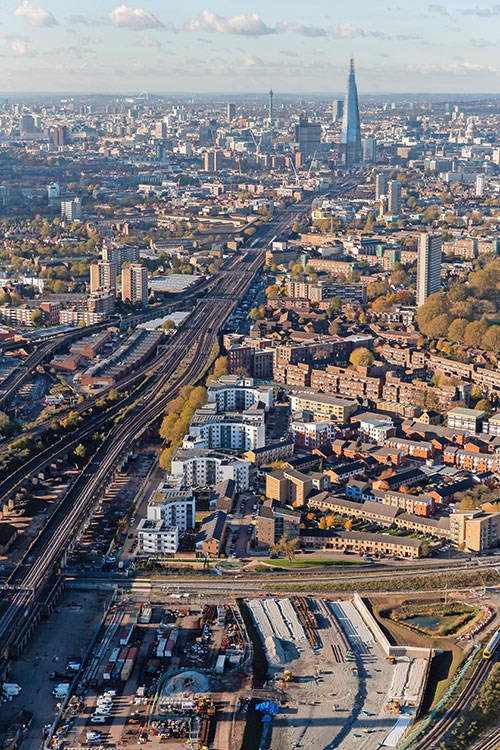
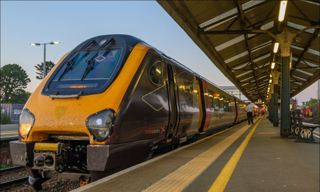
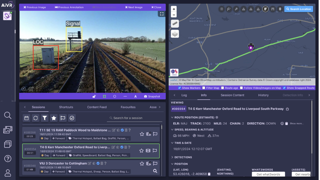
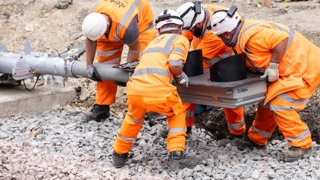
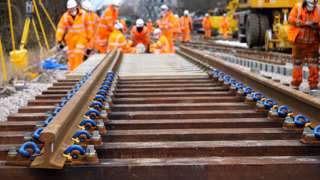










Login to comment
Comments
No comments have been made yet.